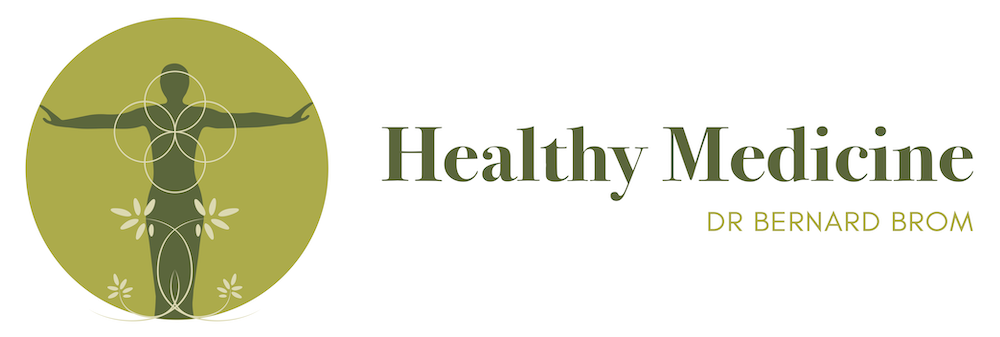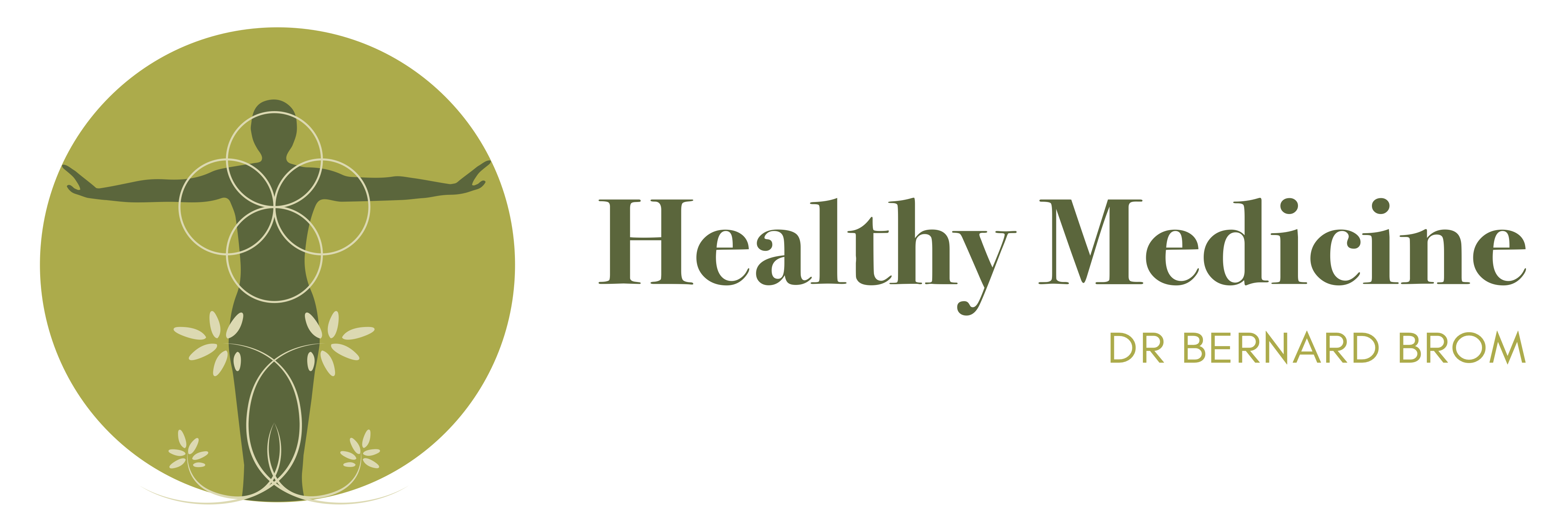Hypertension reviewed
This is a review article of one I wrote almost 10 years ago, updated with recent information. I will also discuss my personal issues with hypertension.
High blood pressure has always been an interest of mine, firstly because I have had high blood pressure since at least the age of 27, but also because it is so common and seems to be associated with a range of medical problems, including cardiovascular disease, kidney disease, peripheral vascular disease and degenerative brain disorders.
Hypertension does seem to be a silent killer, and is regarded as the leading single cause of disability world-wide.
The hypertension paradox
Everything about high blood pressure is confusing for someone like me. Here is why. Firstly it is a reading taken by a machine.
The condition never existed until blood pressure could be measured, and then suddenly we had a new ‘disease’ which had to be treated. It is the most common single condition seen in general practice, and the incidence increases with age. Hypertensive medications are now the second most commonly used drugs on the market, making billions of rand for drug companies, driving up the cost of medical care.
There are now even suggestions by specialists that we should not even bother to take blood pressure because the evidence is so strong for the usefulness of anti-hypertensive drugs, and that everyone should be taking one. The lower the blood pressure, the better, is the sentiment. Add a statin drug, and a little bit of aspirin and one has the ‘polypill’ that may even become standard practice if some people get their way.
Because of the powerful effect of advertising it is generally assumed by the lay public and most doctors that the evidence for lowering blood pressure is very robust, and that the polypill may even be a good idea.
So when one reads in the standard medical journals that effective management of hypertension can have benefits in terms of reduction of morbidity and mortality from stroke, peripheral arterial disease, coronary heart disease, heart and renal failure and dementia, then most doctors will probably agree that the evidence is overwhelming, and that a blood pressure of 140/90 requires treatment and certainly a blood pressure of 160/ 95 may be dangerous to your long-term health. There is also increasing pressure to try to bring down the BP to 120/80 if possible, and perhaps even lower.
A New England Journal Article as recent as August 2009 states that hypertension is a major risk factor for cardiovascular and renal disease and that early data indicates that untreated hypertension shortens life expectancy by approximately 5 years.
[Chobanian AV The hypertension paradox-More uncontrolled disease despite improved therapy NEJM 2009;361(9):878-887]
[Franco OH et al Blood pressure in adulthood and life expectancy with cardiovascular disease in men and women. Hypertension 2005;46:280-286]
Even in the elderly with isolated systolic pressure, placebo controlled trials found that by lowering blood pressure there was a substantial reduction in mortality and morbidity from cardiovascular diseases.
[Beckett NS et al Treatment of hypertension in patients 80 years of age or older. NEJM 2008,358:1887-1898]
Let me quote directly from the NEJM article by Dr Aram V Chobanian, President Emeritus of Boston University: ‘Such reductions that have been achieved with antihypertensive therapy have been truly impressive. In placebo-controlled trials, the incidence of stroke has been reduced by an average of 35 to 40%, the incidence of coronary events by 20 to 25% and the incidence of congestive heart failure by more than 50%. Malignant hypertension has become a rare entity, and acute hypertensive heart failure and haemorrhage stroke are now uncommon.’
… end of story.
…or just the beginning?
With the weight of this evidence, what is there to say?
- ….that drugs have serious side effects and taking these drugs (often 2-3 different types) for the rest of the person’s life does not seem like a great idea
- ….that high blood pressure does not equal a disease called hypertension, except in exceptional cases when the BP is seriously high
- …that people as they get older have a physiological rise in blood pressure, and adding one drug on top of another cannot possibly be healthy?
And so it was heart-warming to at last begin to see that my gut feeling about hypertensives may have some scientific support. One of the articles had this quote which seems quite apt: ‘For every complicated problem there is a solution that is simple, direct, understandable, and wrong.’ (H.L.Mencken).
There is the idea which started with a guy called Jeremiah Stamler, considered the founding father of preventive cardiology, that ‘the relation of systolic blood pressure to risk of death is continuous, graded, and strong and there is no evidence of a threshold’. This idea has developed to the point where it is generally felt that the higher the blood pressure the worse the end results, and that the lower the pressure the better the prognosis. The polypill idea that everyone should get the pill no matter what their blood pressure arises from this idea and forms the foundation for the current guidelines for hypertension.
[Stamler J Blood pressure and high blood pressure aspects of risk. Hypertension.1991;18(suppl 1) 1-95-1-107]
[Guidelines subcommittee,1999 World health Organization-International Society of Hypertension Guidelines for the management of hypertension. J Hypertension 1999;17:151-83]
Let me now quote from the article of Port et al, who should know what he is talking about as he is from the department of Mathematics and Statistics. ‘But it is often forgotten that when a study reports a linear (or any other) relationship between two variables, it is not the data itself, but the model used to interpret the data, that is yielding the relationship. Almost universally, studies that report a linear relationship of risk to blood pressure do so via the linear model such as the Cox model or the linear logistic model.’ Clearly the models are only models and cannot necessarily apply to the individual when there are so many confounding factors.
Twenty years earlier Ancel Keys had concluded that the linear model, in terms of the relationship of overall and coronary heart disease death to blood pressure, was unjustified.
[Keys AB Seven countries: a multivariate analysis of death and coronary heart disease. Cambridge,MA: Harvard university Press 1980]
This suggests to me that statistics are the map, but not the territory. Each person is unique and one can’t just go on a blood pressure reading.
[Port S et al There is a non-linear relationship between mortality and blood pressure. EHJ 2000;21:1635-1638]
Port makes some other very interesting deductions. He points out that while there is some reduced risk of cardiovascular disease in people receiving antihypertensive drugs , the fall in BP is often only a few degrees and that drugs that lower BP by about the same amount have very different effects on outcomes. Other studies have shown that ACE inhibitors provide diverse and even profound cardiovascular benefits, with only trivial differences in blood pressure. The point he is making is that the blood pressure lowering of these drugs may be inconsequential to their effects on the cardiovascular system as a whole. One of his conclusions therefore is that the administration of these drugs based solely on the fact that a person’s systolic blood pressure exceeds 140mmHg cannot be justified.
None of this should have really surprised us. How did it ever happen that blood pressure became a disease the moment someone began to invent a machine to measure blood pressure? And who decided what was normal?
Dr Malcom Kendrick points out the similarity between the story of hypertension and that of cholesterol. He asks, is there is such a thing as a normal level, and if it goes up does it cause cardiovascular disease? Even the cholesterol-lowering effect of statins is not regarded as their primary positive feature, which is rather due to an anti-inflammatory response in the body.
It needs a drug to bring hypertensive levels down or cholesterol levels down, and the levels considered ‘high’ have been adjusted down relentlessly over the years. No one really knows why blood pressure levels go up.
It is quite fascinating how medical scientists, backed by pharmaceutical companies, can turn a physiological ‘marker’ into a disease and then treat the disease with drugs that become more and more expensive. There is increasing evidence also that the newer drugs don’t do much better than the older ones.
Interestingly, the first real study to assess whether treating mild to moderate high blood pressure made a difference to outcomes came up with some mind-blowing results. This was the UK MRC study reported in 1985. They selected 18 000 people with systolic pressures below 200 and a diastolic pressure between 90-109mm Hg. The bottom line result of overall mortality showed that there were 248 deaths in the treated group vs 253 deaths in the placebo group. Clearly not statistically significant.
[MRC Trial of treatment of mild hypertension :principle results. Medical Research Council working party. BMJ .1985;291(6488)97]
So what happened as a result of this study? Nothing at all. The wheel had already started turning and just continued to turn with an emphasis placed on studies that supported the standard viewpoint until everyone began to sing the same song.
I don’t think that anyone would argue about the treatment of very high blood pressure, and there is evidence that very high blood pressure can increase the incidence of strokes; but what about a blood pressure of 140 or even 160 systolic? So is it the blood pressure (or cholesterol) itself that causes the problem, or some underlying condition that is being missed.
And now we have the most recent study on this subject which showed that reducing blood pressure below the standard 140/90 is not beneficial in terms of reducing mortality or morbidity. Let me quote fully from the abstract so that perhaps it will be remembered longer:
‘This review was performed to find and assess all trials designed to answer whether lower blood pressure targets are better than standard blood pressure targets. Data from seven trials in over 22 000 people were analysed. Using more drugs in the lower target groups did achieve modestly lower blood pressures. However, this strategy did not prolong survival or reduce stroke, heart attack, heart failure or kidney failure. More trials are needed, but at present there is no evidence to support aiming for a blood pressure target lower than 140/90 mmHg in any hypertensive patient.’
[Arguedas JA,Perez MI, Wright JM. Treatment blood pressure targets for hypertension. Cochrane Database of systemic Reviews .2009 Issue 3]
Cochrane Database, nogal. This is a review of seven trials acceptable to the reviewers and not just a single trial.
The Cochrane group has continued to be out of step it seems with most other studies. This is perhaps not surprising as the group is supposed to be unbiased and not sponsored by pharmaceutical money. In a more recent study (2019) they updated their previous review and included six trials with 9484 participants who were followed up for one to 4,7 years. They analysed data to detect differences between lower and standardised blood pressure goals in terms of numbers of deaths and numbers of serious side effects leading to hospital admissions. They found no difference in total number of deaths, or heart and vascular deaths between lower and standardised blood pressure goal approaches. They concluded that there is insufficient evidence to justify lower blood pressure targets below 135/85 mmHg in people with hypertension and established cardiovascular disease.
Saiz LC et al Published 3 September 2020 Cochrane
Another review of blood pressure targets for hypertension in older adults assessed the effects of a higher (less than 150 to 160/ 95-105mmHg) BP target compared to a lower BP target of less than 140/90 in hypertensive adults 65 years of age or older. They did not find a difference between the higher BP target and the conventional lower BP target.
Conclusion and personal viewpoint
Blood pressure is clearly an important aggravating factor contributing to increasing damage to the cardiovascular system all around the body, especially coronary vessels but also the cerebral and kidney vasculature. It is however not the only factor involved. It may initiate damage to the endothelial lining, affecting Nitrous Oxide (NO) production. The combination of high blood pressure and NO involvement leads to the breakdown of the endothelial lining initiating atherosclerosis and the deposit of cholesterol within the intima. The latter may be a protective measure and should not be seen as a causative factor.
The big question revolves around the level of blood pressure that is acceptable and this is what the controversy is all about.
The recent SPRINGER study suggests that doctors should now make 120/80 the upper limit of normal and everyone over this limit requires treatment. Treatment as we all know involves very often two or even three drugs, and the problem of side-effects is very real, and is why patients very often just stop taking their drugs, especially as high blood pressure of itself does not cause any symptoms. And as I indicated above, treating with antihypertensives does not treat the underlying causes, which means that this is symptomatic treatment leaving the underlying causes to continue which may further damage the system in a more covert way.
What could these underlying factors be?
Stress is clearly a big one as the white-coat syndrome effect suggests. Lead poisoning from petrol fumes could be another factor. Sympathetic overdrive will clearly push the BP up as well, and many people today are in constant overdrive, pushing their sympathetic system into flight mode. As I have pointed out in other articles human beings are matter-energy-information-quantum systems, and the cause of many illnesses may not even be physical in origin. Symptomatic treatment may have its place, but clearly does not go deep enough to heal.
There is some lip service paid to lifestyle changes as a first priority but clearly this is not a real consideration because few doctors even know what this means and don’t really spell this out clearly to their patients. Nevertheless there is clear evidence that change in diet towards a more Mediterranean style diet, the DASH diet or even a plant-based diet could make a significant difference. Adding exercise and stress management is also important.
In addition to the above there are some interesting nutritional supplements that could also lower BP, before drugs are included. These include hibiscus, craetagus, magnesium, potassium, quercetin, arginine, citrulline and taurine. I will discuss these options in a future newsletter. Willow’s Hypertense contains a number of these products.
What about the high fat, low carbohydrate diet for preventing CVD? Diabetes is clearly a serious concern for the vasculature. Diabetics have heart attacks and strokes at a much younger age than the normal population. High-fat low-carb diets do seem to help, but then plant-based diets with whole grains, which are high in carbs, also claim to help manage diabetes. Dean Ornish, in his book ‘The Spectrum’ has a whole chapter in preventing and treating type 2 diabetes using a plant based, whole grain diet.
Then we also have the immense power of the placebo response to contend with. If the placebo response can heal angina pectoris and arthritis of the knee as reported in other newsletters, then does changing diet also have a powerful placebo effect?
This is confusing, I know!
So what blood pressure should be regarded as optimal?
The controversy arises when medical scientists and anyone else tries to restrict the problem to a very narrow field.
I realised the truth of this in my own experience with my cardiologist. His only interest was in my cholesterol figures. There was no discussion on life tyle, homocysteine, ultrasensitive CRP, thyroid function, level of testosterone or the possibility of leaky gut, methylation, mitochondrial function or my personal spiritual journey etc. I get it that it becomes much too complex to add all these factors into the equation, but the problem then is that any conclusion one makes when all these factors are left out, and any management protocol based on these very narrow investigations, will always be inadequate and not necessarily helpful for the integrative doctor trying to see the big picture.
This probably means that for the patient who is not doing any lifestyle management, and who goes to a doctor not interested in seeing the big picture, bringing down the blood pressure to below 140/80 may be appropriate. But for the integrative doctor, using blood pressure medication is probably a long way down the line. Integrative doctors have a much more comprehensive approach and blood pressure control with drugs is not the immediate solution. If blood pressure is above 160/100 then a more aggressive approach to the blood pressure should be taken, and depending on age and co-morbidities even the use of a drug may be appropriate. Reserpine, the active extract of the herb rauwolfia, may be considered as a first choice. Reserpine was the first drug doctors had to treat hypertension when I was a student.
And Finally …
I have brought up some serious question that in a way don’t just involve hypertension and its management. But I am calling into question the way we all make a diagnosis and go about treating it when so much is unknown. This applies not only to conventional doctors, but also Integrative and other health practitioners. We are all working in the dark and this may never change. The integrative way of supporting health rather than using drugs to treat disease is I think a better option when so much is unknown, but we should not be arrogant in believing we have absolute answers in this most mysterious of challenges presented to us in practice.
(excerpt from Creating Health Newsletter December 2020)



